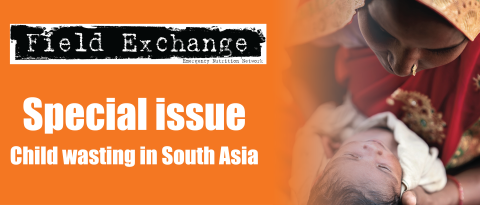Factors influencing maternal nutrition practices in a large scale maternal, neonatal and child health programme in Bangladesh
Research snapshot1
Improving maternal nutrition practices during pregnancy is essential to reduce the high burden of maternal, infant and child undernutrition and mortality. This paper examines the maternal, household and health-service factors influencing maternal nutrition practices in the context of a large-scale maternal, neonatal and child health (MNCH) programme in Bangladesh. Data were drawn from a household survey of pregnant (n = 600) and recently delivered women (n = 2,000). Multivariate linear and logistic regression analyses were used to examine the determinants of three outcomes: consumption of iron and folic acid (IFA) tablets; consumption of calcium tablets; and diverse diets. During pregnancy, women consumed 94 ± 68 IFA and 82 ± 66 calcium tablets (out of 180 as recommended) and only half consumed an adequately diverse diet. Good nutrition knowledge was the key maternal factor associated with higher consumption of IFA (β = 32.5, 95% CI: 19.5, 45.6), calcium tablets (β ~31.9, 95% CI: 20.9, 43.0) and diverse diet (OR = 1.8, 95% CI: 1.0±3.1), compared to poor knowledge. Women’s self-efficacy in following recommended practices and perception of enabling social norms were significantly associated with dietary diversity. At the household level, women who reported a high level of spousal support were more likely to consume IFA (β = 25.0, 95% CI: 18.0, 32.1) and calcium tablets (β = 26.6, 95% CI: 19.4, 33.7) and have a diverse diet (OR = 1.9, 95% CI: 1.2, 3.3), compared to those who received low support. Health-service factors associated with higher intakes of IFA and calcium tablets were early and more prenatal care visits and receipt of free supplements. Combined exposure to several of these factors was attributed to the consumption of an additional 46 IFA and 53 calcium tablets and 17% higher proportion of women consuming diverse diets.
MNCH programmes provide a delivery platform with the potential to reach large proportions of pregnant women with essential nutrition interventions. However, effective integration of a package of nutrition interventions may require priority strategies. This study illustrates that improving both demand side (such as maternal knowledge, self-efficacy and perceptions of social norms) and supply side (such as early registration in prenatal care and provision of free supplements), together with family support, have the potential to improve maternal nutrition practices.
1 Nguyen PH, Sanghvi T, Kim SS, et al. Factors influencing maternal nutrition practices in a large scale maternal, newborn and child health program in Bangladesh. PLoS One. 2017;12(7):e0179873. Published 2017 Jul 10. doi:10.1371/journal.pone.0179873


